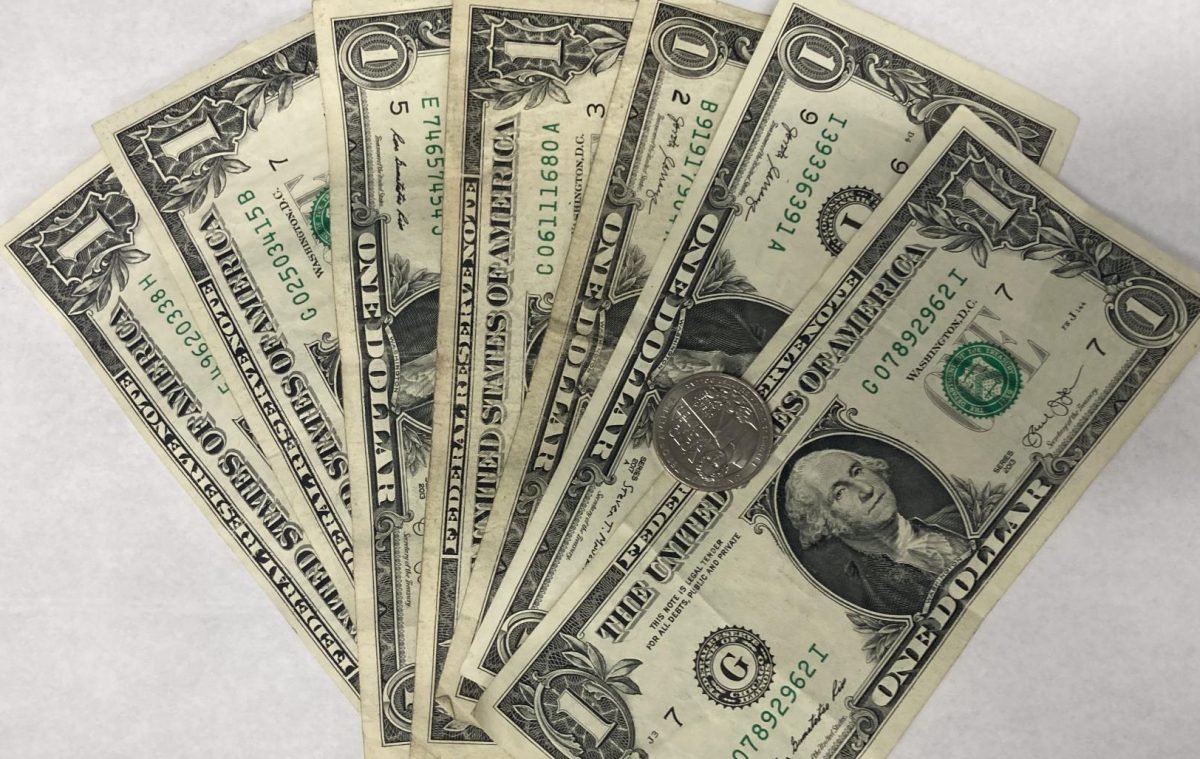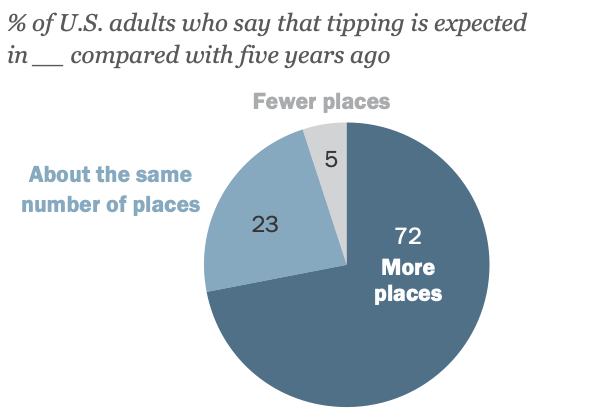The current minimum wage nationwide is $7.25. The highest generalized minimum wage in the United States is $17.00 in the Washington District of Columbia. The highest food service minimum wage nationwide is in California—a state with a notoriously high cost of living—with $20 an hour. Even in the best conditions, including those of a budgeted lifestyle, the minimum wage cannot feasibly afford the average cost of living, which sits at a near minimum of over $2,000 a month.
Many have seen the graph of wages compared to the cost of living, which has been circulating around the Internet this past year. The regression line for home price increases exponentially faster than the regression line for income. Our parents tell us to step into the real world, yet even after hours of work with equal pay distribution—no compensation or punishment for harder or lax work—the issue persists. It’s time to raise the wage and make it easier to live.
Minimum wage has not always been an issue. The cost of living was more manageable forty years ago: roughly 24% of young adults’ monthly income was spent on rent. Today, that same budget is past 30%. Low rates, such as those in the 1980s, save tenants hundreds by giving them a roof over their heads and allowing more ease of spending on other essentials, such as food and mobility, alongside their wants, like entertainment and furnishing.
While going to a college and obtaining a well-rounded education can provide a better path through higher salary work opportunities, college lands students in tribulating money management issues, with years of student debt following graduation. Undergraduates will pay off over $25,000 in debt, with graduate students paying even more, with around $70,000 in debt, if not more.
Raising the minimum wage would also result in more job security. An employee working with a company that pays a subpar hourly wage would gravitate towards higher-paying companies, thus leading them to switch places of employment regularly. This leads to less time working (more time spent training and searching) and less reliability within the workplace. Further, no person is going to want to work a low-wage job. However, this leads to situations where low-wage jobs are all that some people can find since higher-paying jobs become more selective.
The money to pay these workers is there; it’s in the millions of dollars being funneled from sales towards the corporation instead of the people helping the corporation stay intact. In capitalist America, profit margins for dominant corporations tend to trump the priority of staff salaries.
Not only do big corporations lead to competition among small business niches, but they also contribute to inflation rates, directly hurting the economy in the hands of the people by reducing purchasing power—the quantity of a product or service your currency can get you. Additionally, money that could be spent on employee wages and amenities is frequently put towards interest groups, which lobby politicians’ campaigns, creating a political society based on the money. The minimum wage and political participation go hand-in-hand, and if this trend continues, it will lead to America becoming more of a plutocracy than it already is.
With an uncertain economy like America’s, it’s important to stay educated on what your labor entails, consider your value within the company, and make informed decisions based on national economics. It’s also important to know your rights as an employee and when and how to speak up against any salary-based issues that may come your way. Financial literacy is decreasing with each generation; however, the power is in your hands to advocate for your comfort and survival. Until the minimum wage changes, the average American citizen must fight for a place to call home.










Andrew Andrianos • May 26, 2024 at 9:05 pm
Dale is 100% correct. Government is the only one that benefits by collecting more taxes. Taxes should also be frozen for a year on the amount of the raise. But a wishful thinking.
Travis Ryan • May 27, 2024 at 3:16 pm
I appreciate your feedback on my article. However, there are some flaws in your response to the issue. I struggle to understand how you can say there are no benefits to tax increases other than to the government, Andrianos. You can see humanitarian benefits provided to your community through simple school or city referendums. These go back to the city you live in or the school you or your children attend. Without taxes, we would struggle to provide a lot of the services necessary to uphold our society. These kinds of arguments are how you end up with the wealthy paying no taxes backed into conspiracies blaming the government for infinitesimally small percentages of their net worth being spent somewhere other than golf carts and five course dinners. There is no reason for taxes to be frozen. With a minimum wage increase, and taxation based on income, it would create a financially equitable society where taxes are not an insecurity to some, and are not something to find loopholes through for others. Until then, please fact-check your information and stray from using jargon promoted by the increasing gap due to political polarization; humanitarian issues such as minimum wage increases are subject to scrutiny by parties of opposition due to the structure of American politics.
Tim Burkhalter • May 17, 2024 at 12:22 pm
Since money at its most basic is an energy credit, policies that support energy production would be beneficial in raising standards of living for workers at the lower end of the wage scale as the money paid would have greater purchasing power.
Dale T Dietz • May 4, 2024 at 12:29 pm
Every time the minimum wage raises inflation takes off. If the minimum gets raised,prices need to get frozen for a year. Without that happening there is no point or have you not noticed this for yourself.
Travis Ryan • May 27, 2024 at 3:05 pm
I appreciate your feedback on my article. However, there are some flaws in your response to the issue. Dietz, I understand your concern for economic inflation in response to an increase in the national minimum wage, but studies show that may not be the case. Some studies also show that it could lower prices and raise employment margins. While raising the minimum wage all at once can add a shock factor into the market, small stunts towards a prosperous wage smoothens the playing field of consumer versus provider. Justin Carinci made a writeup following the study, stating “By looking at changes in restaurant food pricing during the period of 1978–2015, MacDonald and Nilsson find that prices rose by just 0.36 percent for every 10 percent increase in the minimum wage, which is only about half the size reported in previous studies.” Carinci analyzes the whole study and reflects the statistical evidence that disproves this hypothesis. Additionally, a simple Google search will yield results that show this is a theory built on political dissonance. According to Adam Hayes, who published a fact-checked article on the issue, “They found that raising the minimum wage can result in fewer job-to-job transitions.” Proceeding my thoughts on the issue, it’s safe to say that a minimum wage increase creates more job security. There are little to no reasons not to boost the minimum wage. If you have some kind of citation for your hypothesis, please provide it promptly. Until then, please fact-check your information and stray from using jargon promoted by the increasing gap due to political polarization; humanitarian issues such as minimum wage increases are subject to scrutiny by parties of opposition due to the structure of American politics.